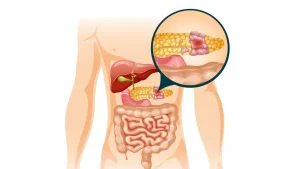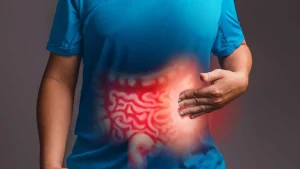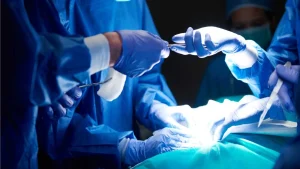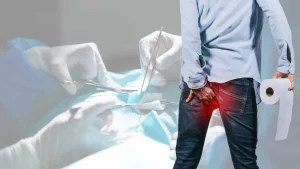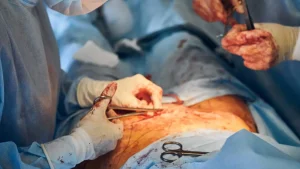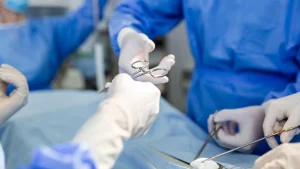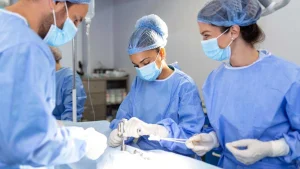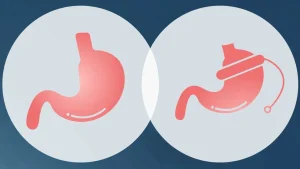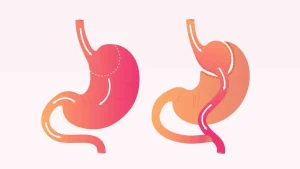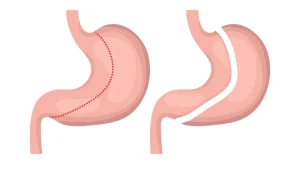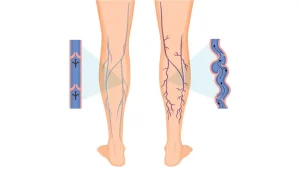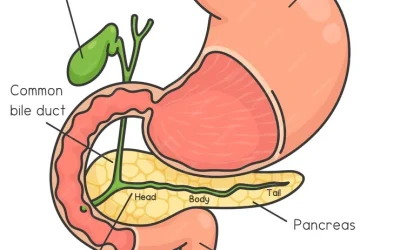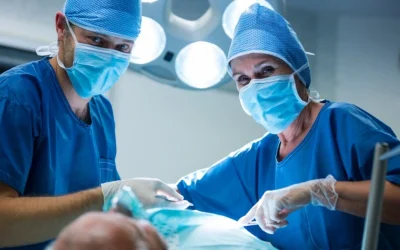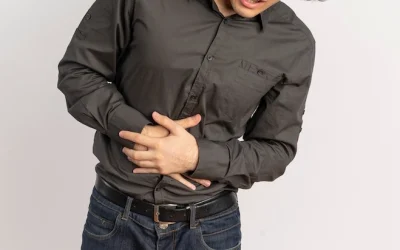Fistula Surgery
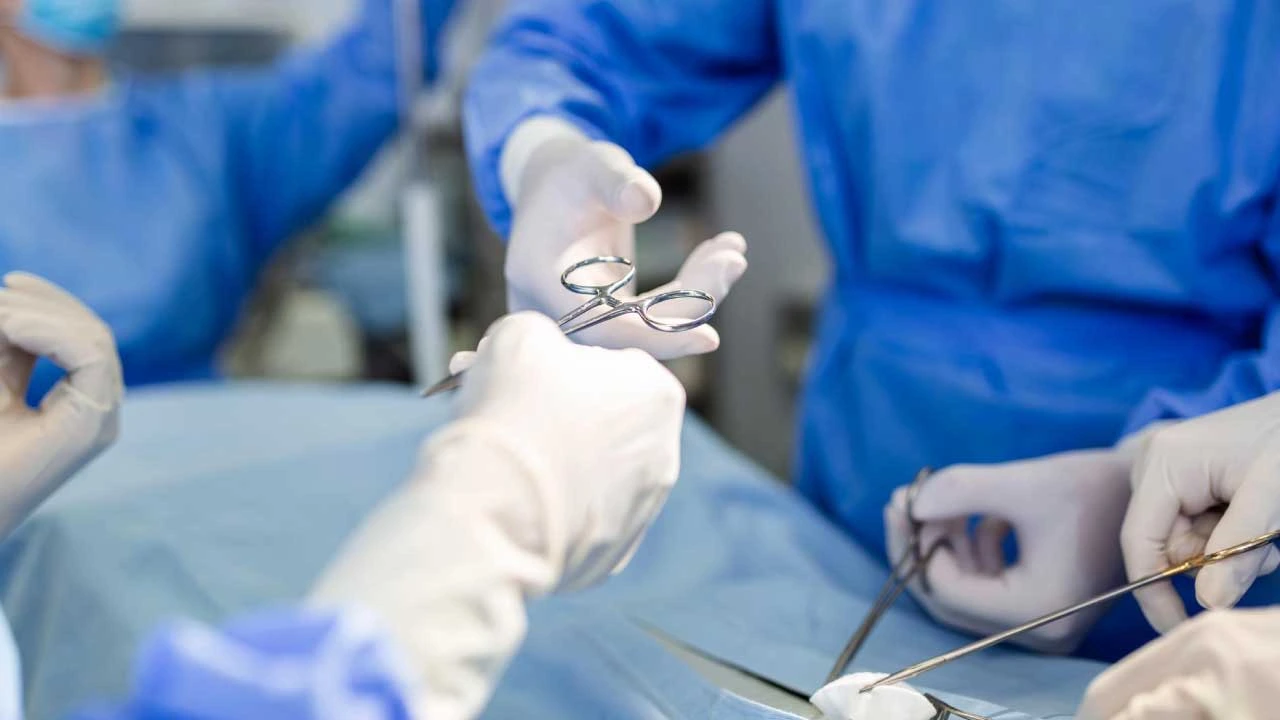
Overview
A fistula is an abnormal connection between two organs or tissues that can lead to complications such as infection, pain, and discomfort.
Fortunately, fistula surgery is a safe and effective treatment option that can help alleviate these symptoms and prevent complications.
Our team of experienced laparoscopic surgeons are here to guide you through every step of the process, from diagnosis to post-operative care, and ensure that you receive the best possible treatment for your condition.
We understand the challenges that come with living with a fistula, and we are committed to providing personalized care and support to help you on your road to recovery. Please continue reading to learn more about fistula, its symptoms, and the available treatment options.
Everything You Need To Know Fistula
What Is Fistula
A fistula-in-ano is a small tunnel that can form in the anal area and is usually the result of an intestinal infection or an abscess. The main symptom of a fistula is drainage from the anus and this can cause significant discomfort. If left untreated, a fistula can lead to further complications so it’s important to seek medical advice if you notice any symptoms.
In some cases, surgery may be necessary to treat a fistula-in-ano and this procedure is called fistulectomy. Fistulectomy involves surgically removing all infected tissue surrounding the opening of the fistula and draining any pus that has accumulated in the area. This procedure can help restore normal bowel function and reduce painful symptoms associated with the infection.
Depending on individual circumstances, more than one treatment may be required in order to completely heal the area completely. Aftercare is also very important following surgery, especially when it comes to wound care, good hygiene practices, dietary modifications for optimal healing and regular check-ups with your doctor or health care provider.
These can vary depending on the location and severity of the infection. Common symptoms include:
- Pain, discomfort and irritation around the anus;
- Discharge or drainage from the anal area;
- Swelling or inflammation in the area, which may be accompanied by redness or soreness;
- Pain when passing stools; and
- Difficulty controlling bowel movements. These symptoms can range from mild to severe, and can cause significant discomfort for patients. Any signs of a fistula should always be discussed with your doctor in order to decide on an appropriate course of treatment.
It is also important for patients to be aware of the potential long-term complications associated with a fistula in order to prevent further damage and complications. Long-term complications can include ongoing inflammation, diarrhoea, recurrent infection, abscesses and tissue damage.
In some cases, a fistula can even cause chronic or acute pain that can affect activities of daily living. Regular check-ups with a medical professional are important in order to monitor the progress of healing and to ensure the fistula has completely healed.
Causes
Fistula-in-ano can be caused by a range of factors, both medical and lifestyle related. Common causes include:
- Injury or trauma to the anal region;
- Inflammatory Bowel Disease (IBD);
- Infections such as sexually transmitted diseases (STDs), tuberculosis, or staphylococcus;
- Anal abscesses and fissures, which can lead to inflammation in the area;
- Crohn’s Disease, an inflammatory disorder that affects the digestive system; and
- Changes in diet or lifestyle, such as smoking or excessive alcohol use. It is important to discuss any suspected causes with your doctor in order to diagnose and treat the condition correctly.
Certain medical procedures, such as radiotherapy to the rectal area or a colonoscopy, can also lead to Fistula-in-ano. Other risk factors include being immunocompromised, having diabetes and having certain types of cancer. It is important to seek medical advice if any of these conditions are present in order to ensure that appropriate treatment is given.
Diagnosis of Fistula
Fistula-in-ano is typically diagnosed by a physical examination and an imaging test. During the physical examination, the doctor will examine the area around the anus and may use a probe to check for any abnormal connections or blockages between organs.
Imaging tests, such as an MRI or CT scan, can be used to get a better view of the structures inside the body and help confirm suspicion of a fistula-in-ano. Lab tests may be conducted to assess for signs of infection or inflammation in the area.
Depending on the results of these tests, other procedures may be conducted such as endoscopy (looking inside with a camera) or anal dilatation (stretching of the opening). These tests can help determine if there are any other underlying conditions that could be causing symptoms.
Treatment Options
Treatment options for Fistula-in-ano depend on the severity and complexity of the condition. Initial treatments are typically attempted to try and resolve the issue without surgery. This can involve wound care, medications to reduce inflammation or infection, and lifestyle changes such as increased water intake or dietary changes. If these therapies do not work, surgery may be necessary.
The most common surgical treatment option is a fistulectomy, which is a procedure where the fistulous tract or tunnel is removed or blocked off by tying off its base. This procedure has the advantage of being minimally invasive and prevents further recurrences of symptoms.
However, there is a risk of damage to surrounding nerves and tissue if performed improperly, which could result in complications.
Other surgical options include seton placement (placing a looped thread around the fistula to stop drainage) and sphincteroplasty (repairing surrounding muscles). Depending on individual circumstances, any of these treatments may be recommended by the doctor.
Pre-Operative Preparation
Before a Fistulectomy procedure, patients should take various steps to prepare for their operation. First, the doctor will typically perform a physical examination and imaging tests to determine if Fistulectomy is the right treatment option and confirm the diagnosis of Fistula-in-ano. Additionally, certain lab tests may be conducted to check for any infections or underlying conditions.
Patients should also alert their doctor if they are taking any medications or have known allergies. Certain additional preparations may be necessary depending on individual circumstances such as fasting before surgery or quitting smoking at least six weeks prior. It’s important that patients follow all pre-operative instructions given by their doctor in order to ensure a successful outcome of the surgery.
The Fistulectomy Procedure
The Fistulectomy procedure is a surgical intervention that involves removing or blocking off the fistulous tract. It is typically done under general anesthesia and involves two main steps.
The first step is to locate the fistulous tract and access it by making small incision in the skin around it. This can be done with a surgical instrument such as a probe, which allows for visualization of the area and helps to ensure proper location of the tract.
Next, the fistula is cut open, allowing for removal of any abnormal tissue. Depending on the complexity or size of the fistula, additional steps might be necessary such as draining any collections of pus or suturing surrounding muscles. After completion of these procedures, a dressing is applied over the wound, and patient can typically go home soon after surgery depending on individual circumstances.
Post-Operative Care
After a Fistulectomy procedure, patients need to take certain steps in order to ensure a successful recovery. It is important to follow all post-operative care instructions given by the doctor.
Patients typically need to allow sufficient time for healing and rest afterwards, which is usually between two to four weeks. During this period, there should be minimal physical activity such as lifting heavy objects or strenuous exercise.
Additionally, it might be necessary for the patient to adhere to certain dietary restrictions and self-care instructions. This includes avoiding any foods that may increase inflammation or otherwise complicate healing, such as those high in fat and sugar. Eating a well-balanced diet including fresh fruits and vegetables can help facilitate recovery time. Additionally, the wound area should be kept clean with regular dressing changes; this will help reduce the risk of infection during the post-operative period.
Risks and Complications Involved
As with any medical intervention, Fistulectomy comes with potential risks and complications. These include infection at the wound site, excessive bleeding or fluid drainage, and nerve damage due to improper positioning during the procedure. Additionally, it is possible that the fistula could recur after surgery.
To reduce the risk of these complications and ensure a successful outcome, it is important to follow all pre- and post-operative instructions given by the doctor closely. This includes attending follow-up appointments when necessary and adhering to dietary restrictions for an appropriate recovery period. Additionally, proper care should be taken to keep the wound area clean and dry in order to prevent infection.
FAQs About Fistulectomy:
-
What are the different types of fistula and which one do I have?
Fistula can be classified into two main types; complex and uncomplicated. The type of fistula you have depends on factors such as size, location and shape. Your doctor will be able to give you more information about your individual case.
-
Is fistula surgery painful?
Pain tolerance varies from person to person. Generally, the procedure itself is not painful; however, some patients may experience some pain and discomfort during the post-operative recovery period due to swelling and soreness in the area.
-
Will I need to stay in the hospital after fistula surgery?
In most cases, a daytime hospital stay is not required following fistulectomy surgery. However, it is possible that your doctor may advise an overnight or extended stay depending on your individual circumstances.
-
Can I resume normal activities after fistula surgery?
Depending on the extent of your surgery, you should expect approximately two to four weeks off of work or other normal activities while healing takes place. It is important to follow all post-operative care instructions provided by your doctor during this time in order to ensure a successful recovery process.
-
Will I need follow-up appointments after fistula surgery?
Yes, it is important for patients to attend post-operative follow up appointments for monitoring progress and addressing any concerns that may arise during the healing process . These typically take place 1-2 weeks following discharge from the hospital or outpatient surgical clinic.
-
How can I prevent fistula from recurring after surgery?
It is important for patients to follow all pre and post operative care instructions given by their doctors closely in order to reduce their risk of developing recurrent fistulas . This includes attending follow up appointment when necessary as well as adhering dietary restrictions for an appropriate recovery period. Additionally, proper care should be taken to keep the wound area clean and dry in order to prevent infection
Why choose Dr Ankit Potdar?
Dr Ankit Potdar is a highly experienced and renowned fistula specialist, having trained in the field of colorectal surgery at very renowned institutions in India. He has extensive experience in treating all types of fistula cases and has achieved great success with his patients. With a comprehensive understanding of the body’s anatomical structure, he is able to provide precise, safe and effective fistulectomy surgery with minimal risk of complication.
He prides himself on his commitment to patient care and satisfaction, offering a personalized approach tailored to each patient’s individual needs. If you are suffering from fistula or have any further questions regarding the procedure, we welcome you to contact us today for further information. We look forward to helping you get back to optimal health.
Our Services
Pancreatic Cancer
Pancreatic cancer is a type of cancer that affects the pancreas – an organ located in the abdomen
Colon Cancer / Colorectal Cancer Surgery
Colon cancer is a serious and potentially life-threatening disease.
Hernia Laparoscopic Surgery
A hernia is the protrusion of an organ or tissue through a weak or damaged area in the abdominal wall
Piles Surgery
Piles, also known as hemorrhoids, are swollen veins in the anal and rectal area.
Appendix Surgery
Pain or discomfort in your abdomen, it is possible that you may have appendicitis.
Fistula Surgery
A fistula is an abnormal connection between two organs or tissues that can lead to complications.
Gallstone Surgery
Gallstone Surgery is a minimally invasive procedure to remove gallstones.
Gastric Band Surgery
Gastric Band Surgery is a safe, non-invasive bariatric procedure that helps you lose weight quickly and safely
Gastric Bypass Surgery
Gastric Bypass Surgery is a minimally invasive procedure that can help you to achieve your weight loss dreams.
Gastric Sleeve Surgery
Gastric sleeve surgery, an effective and popular procedure for achieving significant weight loss.
Varicose Veins
Varicose veins are enlarged, twisted and swollen veins that occur mainly in the lower legs and feet.

PROFILE
About Dr. Ankit Potdar
Dr. Ankit Potdar is one of the best laparoscopic surgeon in Mumbai, India. He has extensive knowledge and training in advanced laparoscopic and robotic surgery, and is known for his precision, expertise, and compassionate approach to patient care.
He is an expert in general, oncological, advanced laparoscopic GI surgery, Thoracic and Esophageal surgery. He is currently associated with SRV Hospital, Goregaon West and Chembur Mumbai.
He has extensive experience in performing minimally invasive surgeries for various conditions, including gastrointestinal diseases, obesity, hernias, and gallbladder problems.
Patient Treated By Dr. Ankit Potdar
People heavily rely on reviews from other patients when choosing a healthcare provider
Dr. Ankit has done my Brother Harnia Surgery. It went well and my brother recovered so fast. Really good Dr. .Explained every precautions and give full assistance in the follow-up as well.. Thank you Dr. Ankit
Best doctor i ever met. Friendly type nature, my umbilical hernia surgery was done by dr ankit poddar and always recving my calls reply by late nights also ...
Dr Ankit Potdar is a gem of a person. I have been operated for ovarian cancer under his care and we are very satisfied with the treatment received. Doctor is very honest and straightforward and also helped us with the treatment protocol post surgery.
Patient Knowledge Center -Blogs
Blogs
Symptoms of Gallbladder Stones ?
Dr. Ankit Potdar, a renowned gallbladder surgeon in Chembur, specializes in treating gallbladder stones. Learn about symptoms and treatme...
Advantages of Laparoscopic Surgery for Hernia Repair
Transforming Hernia Repair: Meet Dr. Ankit Potdar, Mumbai’s Laparoscopy Expert! Uncover the Benefits of Minimally Invasive Surgery ...
Effective Methods for Gallbladder Stone Relief
Gallbladder stones, also known as gallstones, are a common medical condition affecting millions worldwide. These hardened deposits can ca...

